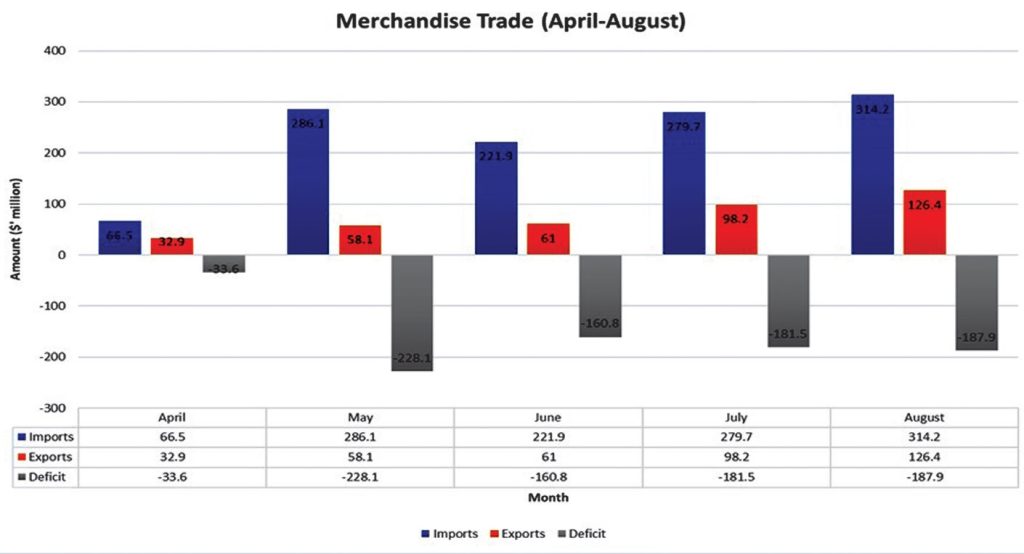Trade deficit hits$1.7bn in Q3—RBM
Data from the Reserve Bank of Malawi (RBM) shows that government is expected to close the third quarter (Q3) with a trade deficit of $1.7 billion (about K1.9 trillion), a development that could pile pressure on forex.
The figures contained in the Statement of the Monetary Policy Committee Fourth Meeting of 2023 show that merchandise trade balance in the Q3 2023 marginally narrowed to $528.8 million (about K618 billion).

The trade balance in Q3 is 3.85 percent lower than the $555 million (about K648.6 billion) deficit recorded in Q2 and 12.5 percent higher than the $470 million (about K549.3 billion) deficit recorded in the corresponding period in 2022.
The perennial trade deficits come at a time the country is failing to sustain some of the bilateral trade deals it signed with other countries.
In an interview yesterday, Malawi Investment and Trade Centre chief executive officer Paul Kwengwere cautioned that if left unchecked, the perennial deficits could worsen the country’s current account and pile pressure on the kwacha.
He said: “What this means in the short-term is forex to finance imports will be in short supply, but that can somehow be mitigated by borrowing.
“In the medium to long-term, the borrowing will affect the development of the country due to the debt repayment burden position the country is currently in.”
To rectify the problem, Kwengwere said the country should focus on improving the current and capital account positions by increasing exports while simultaneously reducing imports.
“This would take many forms, including effective exchange rate management to ensure our currency is not overvalued in which case imports would be cheaper relative to our exports,” he said.
Speaking at the launch of Malawi Value Chains Project in Lilongwe last week, Minister of Agriculture Sam Kawale said he is optimistic the projects and measures that the government has implemented, including the mega farms and irrigation projects, will help reduce the trade deficits in the medium to long-term.
He said: “The plan with the Shire Valley Transformation project is to transform the Shire Valley area into a productive site for irrigation farming and unlock the potential of the various value chains.
“This will expand our export base.”





